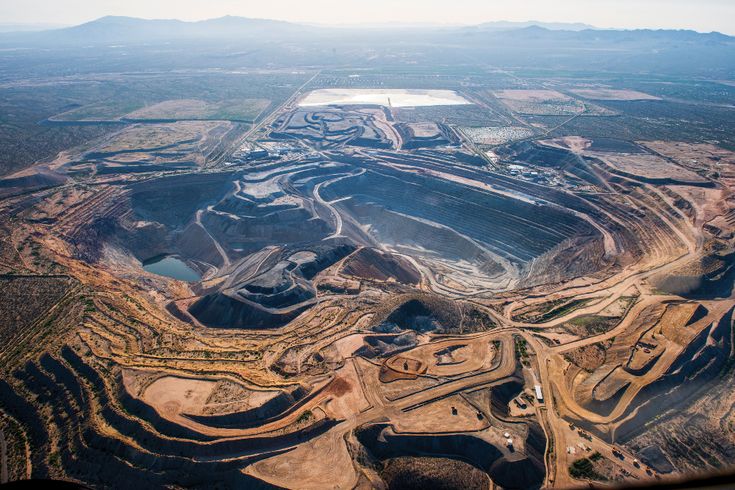
Mining might seem like an age-old industry rooted in the past—but in reality, it’s the beating heart of modern civilization. From the smartphone in your hand to the steel in skyscrapers, nearly everything we use and depend on contains materials that were mined from the earth. Despite technological advancements and the shift toward renewable energy, mining remains a cornerstone of the global economy.
In this post, we explore why mining continues to be essential, how it fuels various industries, and what its future holds in a rapidly evolving world.
What Is Mining, Really?
Mining is the process of extracting valuable minerals or other geological materials from the earth. These materials include metals like gold, copper, iron, and aluminum, as well as non-metals like coal, salt, and limestone.
While the concept may sound basic, mining operations today are sophisticated, capital-intensive endeavors requiring cutting-edge technology, global logistics, and a deep understanding of geology and environmental stewardship.
1. Minerals Are the Building Blocks of Civilization
It’s no exaggeration to say that mining literally builds the world around us.
- Construction: Steel (from iron ore), cement (from limestone), and copper wiring are all critical in infrastructure projects like roads, bridges, and buildings.
- Technology: Smartphones, laptops, solar panels, and electric vehicles all rely on rare earth elements, lithium, cobalt, and other mined materials.
- Energy: Coal, uranium, and even the metals used in renewable energy systems (like wind turbines and solar cells) are all products of mining.
- Transportation: Aluminum for aircraft, platinum for catalytic converters, and copper for electric vehicle motors—all mined and indispensable.
No matter how digital or advanced our society becomes, we remain physically dependent on mined resources.
2. Mining Fuels Global Industries
Mining supports numerous sectors that collectively drive economic growth:
- Manufacturing: Machines, tools, electronics, and automobiles all rely on a steady supply of minerals.
- Energy Production: Fossil fuels (coal, oil, natural gas) and renewables both require mined materials for extraction, infrastructure, and distribution.
- Agriculture: Phosphate and potash, both mined, are vital components of fertilizers.
- Healthcare: Mined minerals like silver are used in surgical tools, diagnostic machines, and even some medications.
In fact, the World Bank estimates that the demand for minerals such as graphite, lithium, and cobalt could increase by nearly 500% by 2050 due to clean energy technologies.
3. Economic Impact and Job Creation
Mining is a major employer, especially in developing countries where natural resources are abundant. It generates millions of direct and indirect jobs—from on-site miners to equipment suppliers, transportation services, and IT support for automated systems.
In many regions, mining contributes significantly to national GDP, foreign exchange earnings, and infrastructure development. Countries like Australia, Canada, Chile, South Africa, and Indonesia owe a large portion of their economic growth to the mining sector.
4. The Green Revolution Depends on Mining
Ironically, transitioning to a “green economy” hinges on the success of the mining industry. Here’s how:
- Electric Vehicles (EVs): Require lithium, cobalt, nickel, and copper for batteries and motors.
- Wind Turbines: Depend on rare earth elements like neodymium and dysprosium.
- Solar Panels: Made with silicon, silver, and cadmium.
- Energy Storage Systems: Heavily reliant on lithium and other battery-grade minerals.
Without mining, we can’t manufacture the technologies needed to reduce carbon emissions and achieve sustainability goals.
5. Innovation Is Making Mining More Sustainable
Historically, mining has been criticized for its environmental and social impact. However, modern mining is undergoing a transformation:
- Cleaner Extraction Methods: Companies are adopting eco-friendly practices, like bioleaching and electric-powered machinery.
- Automation & AI: Enhancing efficiency while reducing human risk.
- Reclamation Projects: Post-mining land restoration is becoming standard in responsible mining operations.
- Transparency Tools: Blockchain and satellite monitoring are helping improve supply chain traceability and ethical sourcing.
These advancements ensure that mining can meet today’s demands without compromising the planet for future generations.
6. Strategic Resource Security
As geopolitical tensions rise and global supply chains face disruption, access to critical minerals is becoming a matter of national security.
Governments are now recognizing the strategic importance of domestic mining to reduce reliance on foreign suppliers—particularly for materials essential to defense, electronics, and energy independence.
Final Thoughts
Mining may not be glamorous, but it is absolutely essential. It underpins the technologies we cherish, the infrastructure we depend on, and the progress we seek in clean energy and global development.
In an age defined by innovation and transition, mining is not just relevant—it is fundamental. As long as humanity continues to build, power, connect, and improve, mining will remain a vital force driving the global economy forward.
Want more insights on how mining and mineral resources shape our world? Follow our blog for the latest updates, investment tips, and industry trends.
